October 22, 2025
Updated: February 17, 2026
Compare Romania’s leading pentest providers DeepStrike’s rapid PTaaS & 12-month unlimited retests versus Safetech, Omnient, Cyber Threat Defense, Bit Sentinel, Black Bullet, CyBourn, and CSD on scope, pricing, and compliance.
Mohammed Khalil
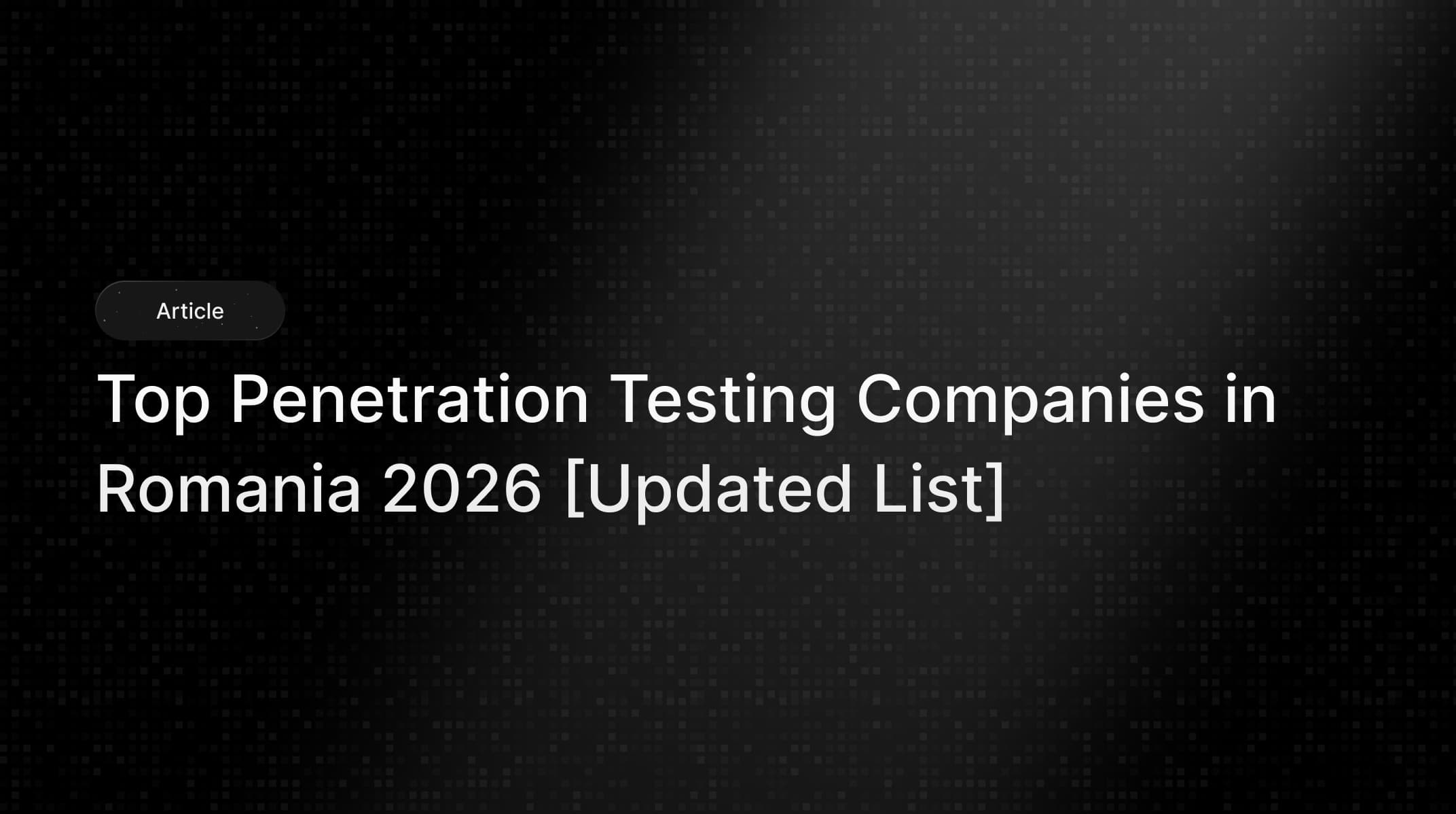
Do:
Avoid:
Romania’s 2026 pentesting landscape is defined by continuous validation, AI driven threats, compliance pressure, and insurance requirements. Buyers are shifting from one off technical tests to ongoing, governance aligned security partnerships.
Romania’s cybersecurity landscape has entered a decisive maturity phase in 2026, moving from reactive security spending toward structured, audit‑driven and board‑approved cyber‑risk governance. Average global data‑breach costs have now surpassed the $5M threshold and continue trending upward, while ransomware recovery figures, legal settlements, and operational downtime costs increasingly exceed traditional IT budgets. For Romanian enterprises, this evolution means cybersecurity is no longer a technical afterthought or an IT‑department line item it is a strategic governance concern discussed alongside financial audits, legal exposure, insurance renewals, and shareholder risk disclosures.
At the same time, artificial intelligence has accelerated both sides of the threat equation. Attackers increasingly rely on automated reconnaissance, credential‑stuffing at scale, deepfake‑driven social‑engineering campaigns, and AI‑assisted phishing kits capable of generating highly personalized attack lures in seconds. Defenders, in response, are compelled to adopt continuous validation models, automated alert correlation, and offensive security simulations rather than annual checklist testing. The combination of AI‑driven threats, NIS2 enforcement pressure, cross‑border data‑transfer scrutiny, and insurance‑driven audit requirements has fundamentally shifted how Romanian organizations evaluate security vendors and allocate cybersecurity budgets.
Romania’s cybersecurity market is projected to rise from approximately $194M in 2025 to over $326M by 2030, representing one of the strongest regional growth trajectories in Central and Eastern Europe. This growth is fueled by NIS2 enforcement deadlines, GDPR penalty escalation, public‑sector digital‑transformation funding, and increased scrutiny around cloud‑data residency and third‑party vendor risk. Penetration testing authorized ethical hacking designed to expose real‑world attack paths and validate defensive controls is no longer a discretionary activity or optional compliance checkbox. It is now a baseline expectation and a proactive risk‑management mechanism across finance, healthcare, energy, telecom, logistics, e‑commerce, SaaS, and government sectors.
Importantly, Romanian organizations are also facing rising supply‑chain risk, API‑driven integration exposure, and hybrid‑cloud complexity. As infrastructure becomes more distributed and development cycles accelerate, the window between vulnerability introduction and exploitation shrinks dramatically. This reality places greater emphasis on penetration testing Romania engagements that focus on exploit validation, lateral‑movement simulation, and remediation verification rather than superficial vulnerability scans.
This ranking is based on independent research, publicly verifiable credentials, service transparency, and procurement‑relevant evaluation criteria rather than sponsorships, affiliate placements, or paid inclusions. The objective is to assist buyers performing commercial investigation, vendor shortlisting, and compliance‑driven due‑diligence rather than provide promotional endorsements or marketing narratives.
The need for a 2026 update is not cosmetic it reflects structural, technological, and regulatory changes in how security validation is purchased, delivered, and audited across Romanian and EU markets:
These shifts collectively justify revisiting vendor positioning, pricing structures, methodology transparency, and service differentiation for 2026 procurement cycles.
Companies were evaluated based on multiple procurement‑relevant dimensions rather than a single numerical score. This approach reflects real‑world buyer decision processes where technical capability, reporting clarity, compliance alignment, delivery flexibility, and post‑engagement remediation support collectively influence shortlisting outcomes.
Evaluation Criteria Included:
Companies were assessed holistically across multiple dimensions rather than a single numeric score, reflecting real‑world buyer decision processes.
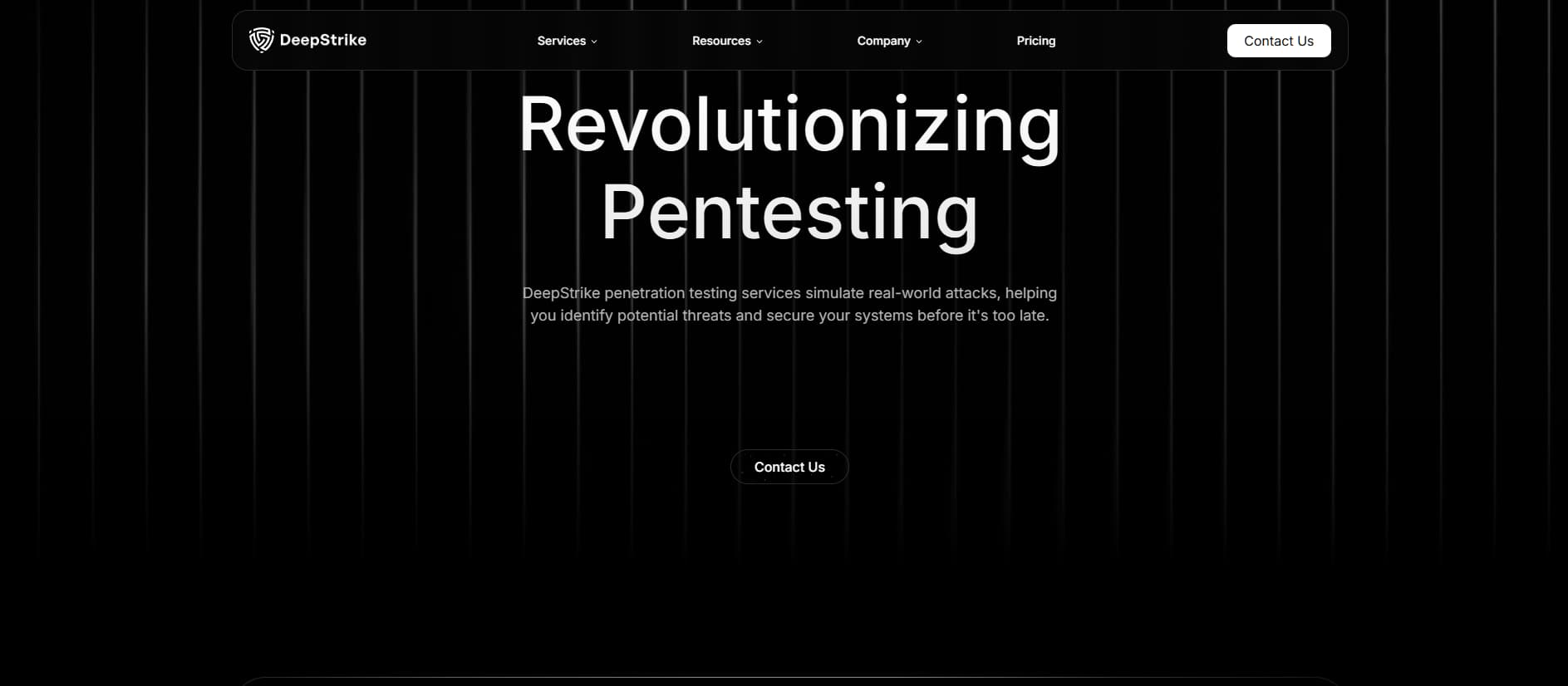
DeepStrike is included in this list based on the same evaluation criteria applied to all providers.
DeepStrike operates Bucharest‑based offensive‑security teams with a manual‑first methodology emphasizing continuous validation, exploit‑chain simulation, and unlimited retesting cycles. The firm positions itself around practitioner‑led testing rather than automated scanning, which aligns with procurement demand for deeper exploit validation, contextual risk analysis, and actionable remediation guidance rather than surface‑level assessments. Engagements span web, mobile, cloud, API, infrastructure, identity systems, and adversary‑simulation exercises aligned with OWASP and NIST SP 800‑115 methodologies.
2026 Focus:DeepStrike expanded continuous PTaaS delivery models, emphasizing subscription‑based validation for SaaS and fintech sectors while introducing stronger developer‑workflow integrations and dashboard‑driven remediation tracking. Regulatory alignment reporting templates for ISO 27001, PCI DSS, GDPR, and SOC 2 became more structured, and unlimited retest guarantees strengthened procurement confidence. Market positioning in 2026 centers on transparency, manual depth, rapid onboarding, and continuous validation rather than one‑off engagements.
Best For: Rapid remediation cycles, SaaS platforms, fintech environments, API‑heavy architectures, and organizations requiring frequent retesting rather than annual audits.
Procurement teams often reference resources such as penetration testing services and continuous penetration testing services when evaluating delivery models, validation cadence, and long‑term vendor partnerships.
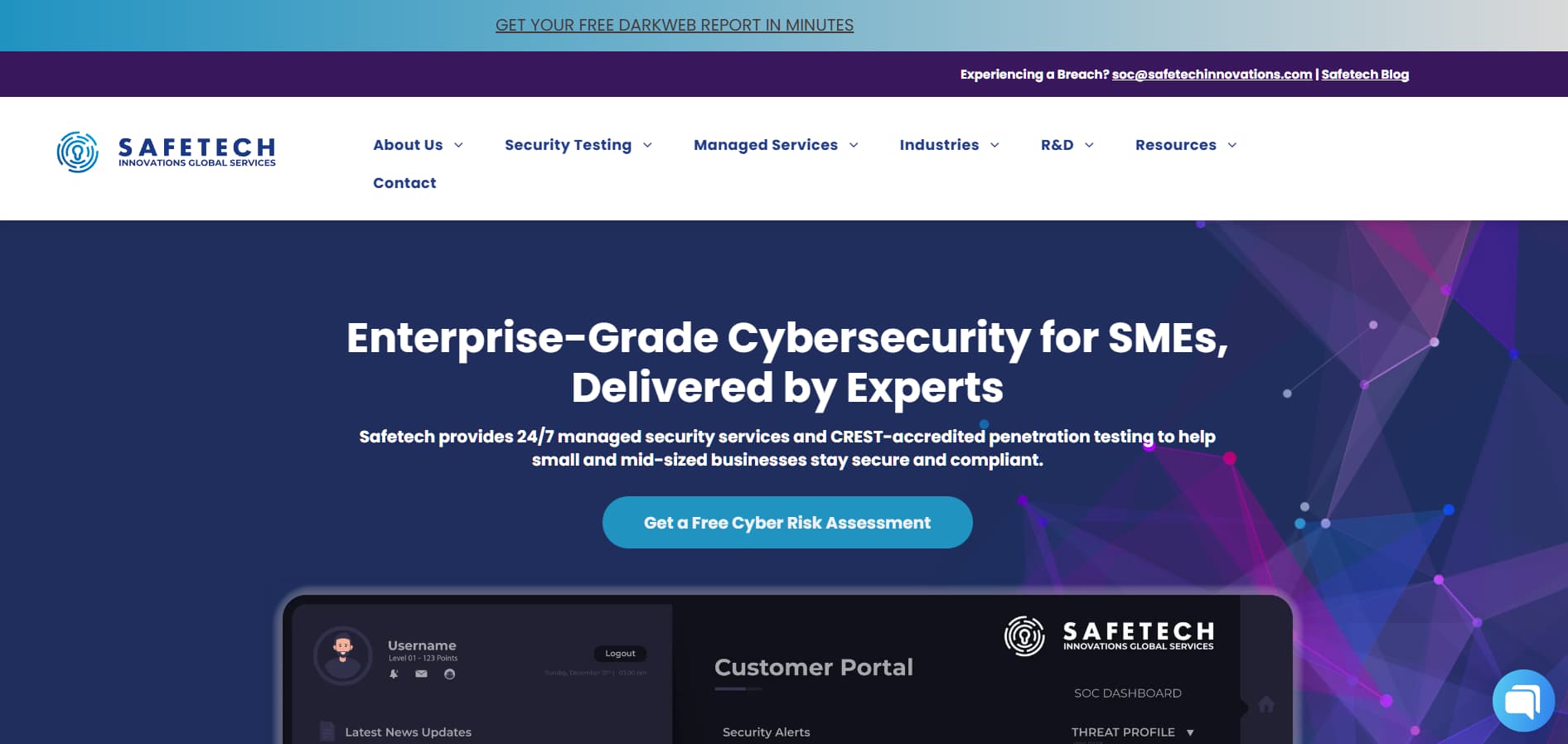
Safetech Innovations remains one of Romania’s largest publicly traded cybersecurity firms, combining penetration testing with 24/7 SOC, MDR, digital forensics, and incident‑response services. Its scale, structured SLAs, and insurance‑backed delivery assurances appeal strongly to financial institutions, utilities, telecom providers, and government entities requiring enterprise‑grade reliability and multi‑service consolidation.
2026 Focus:Safetech strengthened regulatory audit support, cross‑border compliance reporting, and managed detection integration into validation engagements. The company expanded critical‑infrastructure coverage and board‑level reporting frameworks, positioning itself as a governance‑aligned security partner rather than a purely technical provider.
Best For: Banks, utilities, insurance providers, large enterprises, and public‑sector institutions prioritizing SOC integration alongside penetration testing Romania requirements.
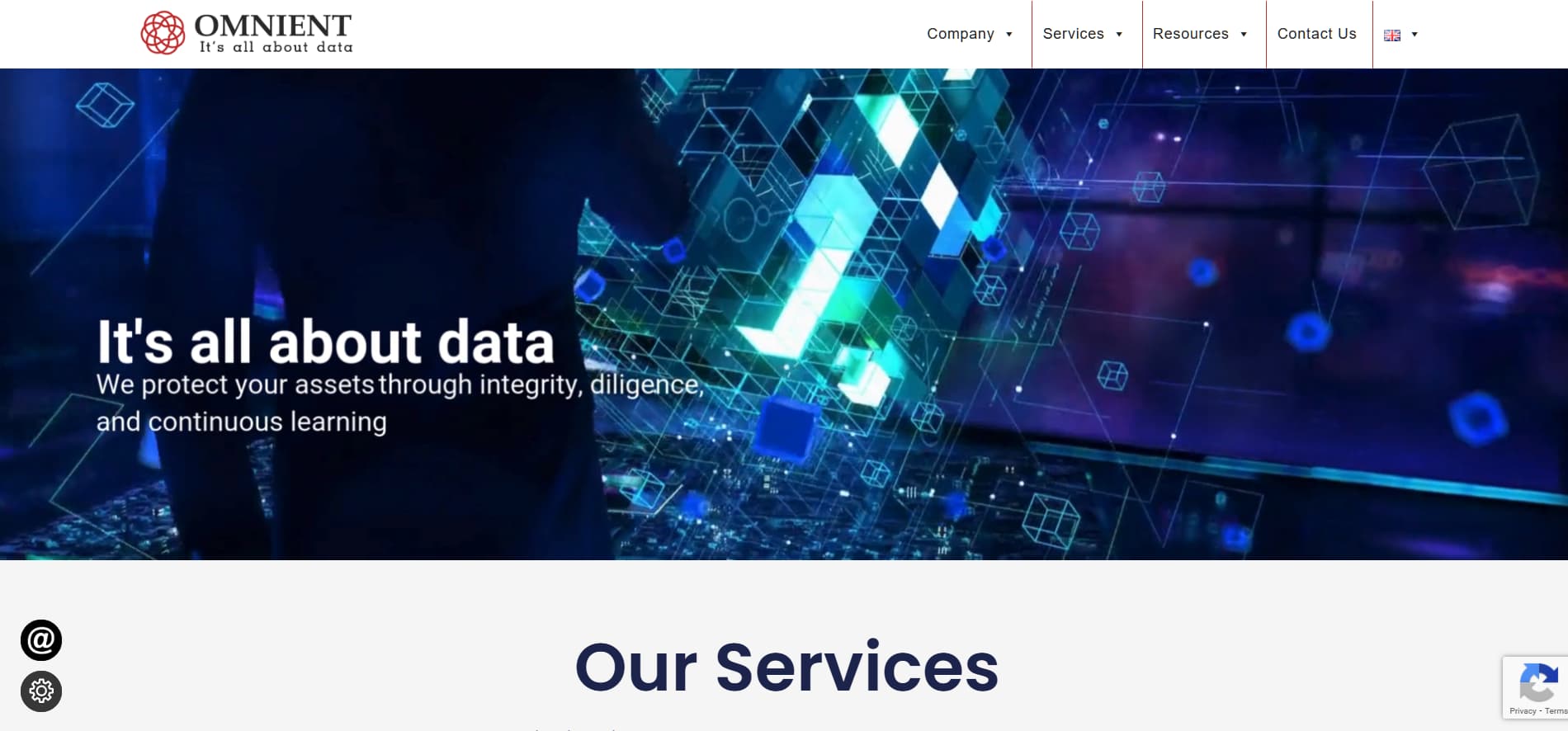
Omnient maintains a reputation for instructor‑level expertise, structured engagement design, and methodical vulnerability validation. The firm’s consultants frequently combine offensive security testing with training, secure‑code review, and architectural advisory services, appealing to organizations seeking both technical assessment and internal capability development.
2026 Focus:Expanded cloud, IoT, and industrial‑control‑system assessment specialization while strengthening documentation frameworks for compliance‑driven audits. Market positioning emphasizes technical depth, reporting clarity, and educational value rather than volume‑driven engagement models.
Best For: Mid‑market enterprises, technology firms, and organizations seeking detailed methodology transparency and knowledge transfer alongside technical validation.
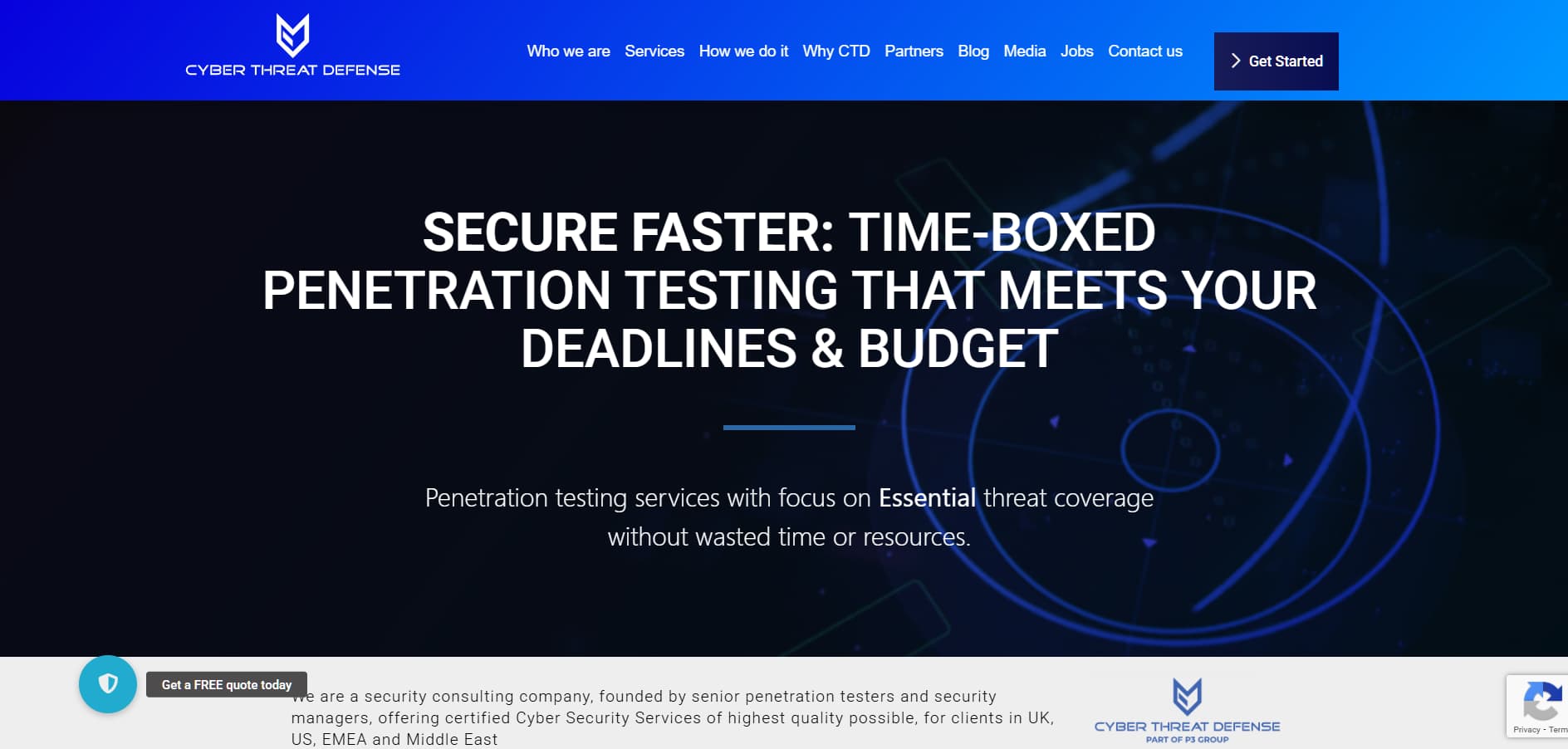
Cluj‑Napoca‑based CTD emphasizes rapid delivery cycles, agile scoping, and time‑boxed engagements designed for deadline‑sensitive projects and product‑launch timelines. CREST accreditation and structured scoping phases contribute to procurement confidence among startups, hosting providers, and cloud‑native organizations.
2026 Focus:Enhanced adversary‑simulation offerings, API‑security validation, and microservice architecture testing capabilities. Market positioning stresses efficiency, speed, and pragmatic remediation guidance rather than extensive consulting layers.
Best For: Technology startups, hosting providers, SaaS companies, and firms requiring quick‑turnaround red team Romania or cloud penetration testing Romania projects.
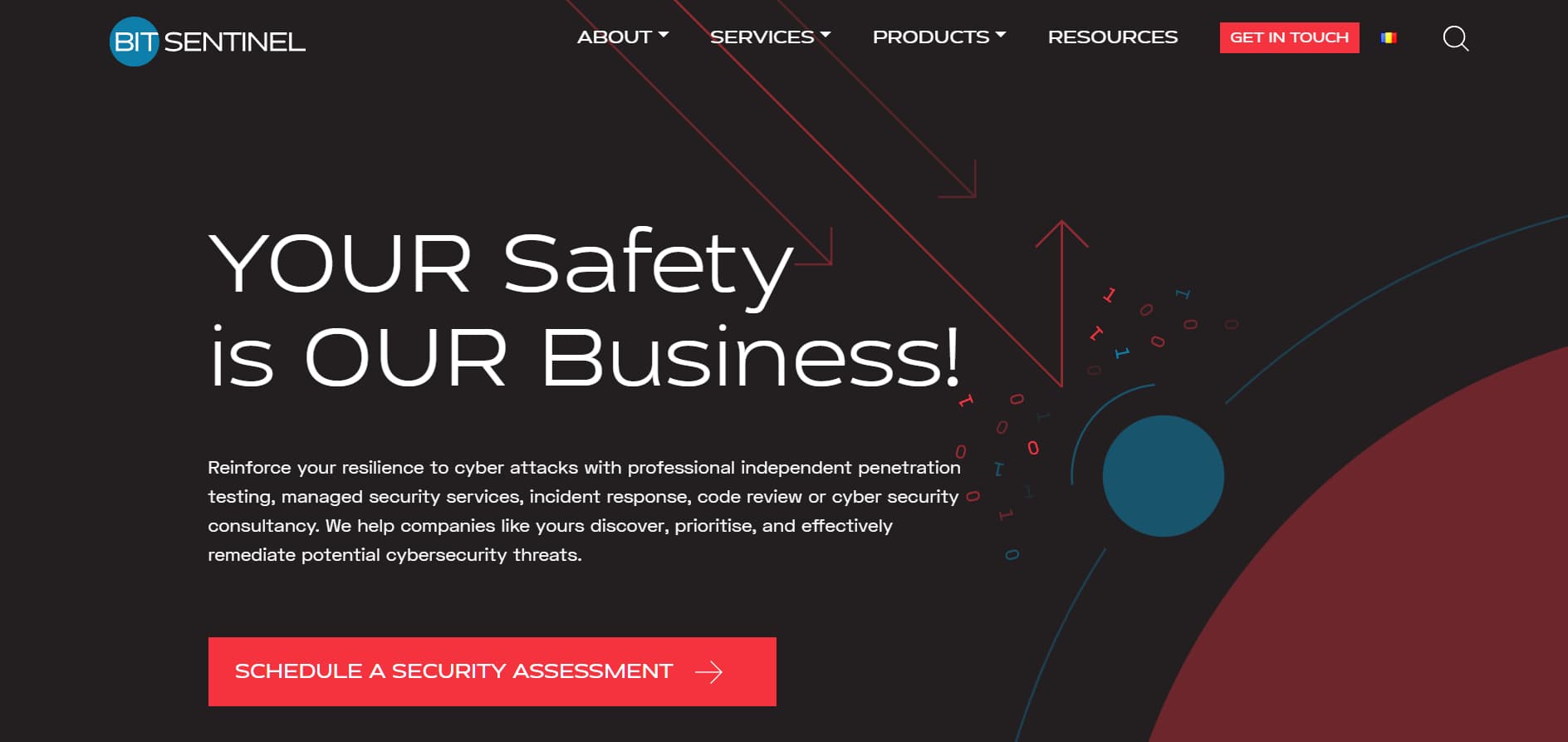
Bit Sentinel integrates security research, conference leadership, capture‑flag initiatives, and penetration‑testing services, creating a brand identity rooted in technical community engagement and continuous vulnerability discovery. Its portfolio spans web, blockchain, infrastructure, and social‑engineering testing alongside SOC‑as‑a‑Service offerings.
2026 Focus:Strengthened blockchain‑security specialization, vulnerability‑research programs, and innovation‑driven exploit discovery initiatives. Market positioning emphasizes flexibility, experimentation, and technical community leadership rather than strict enterprise formalism.
Best For: Crypto platforms, startups, research‑oriented organizations, and firms valuing cutting‑edge vulnerability discovery approaches.
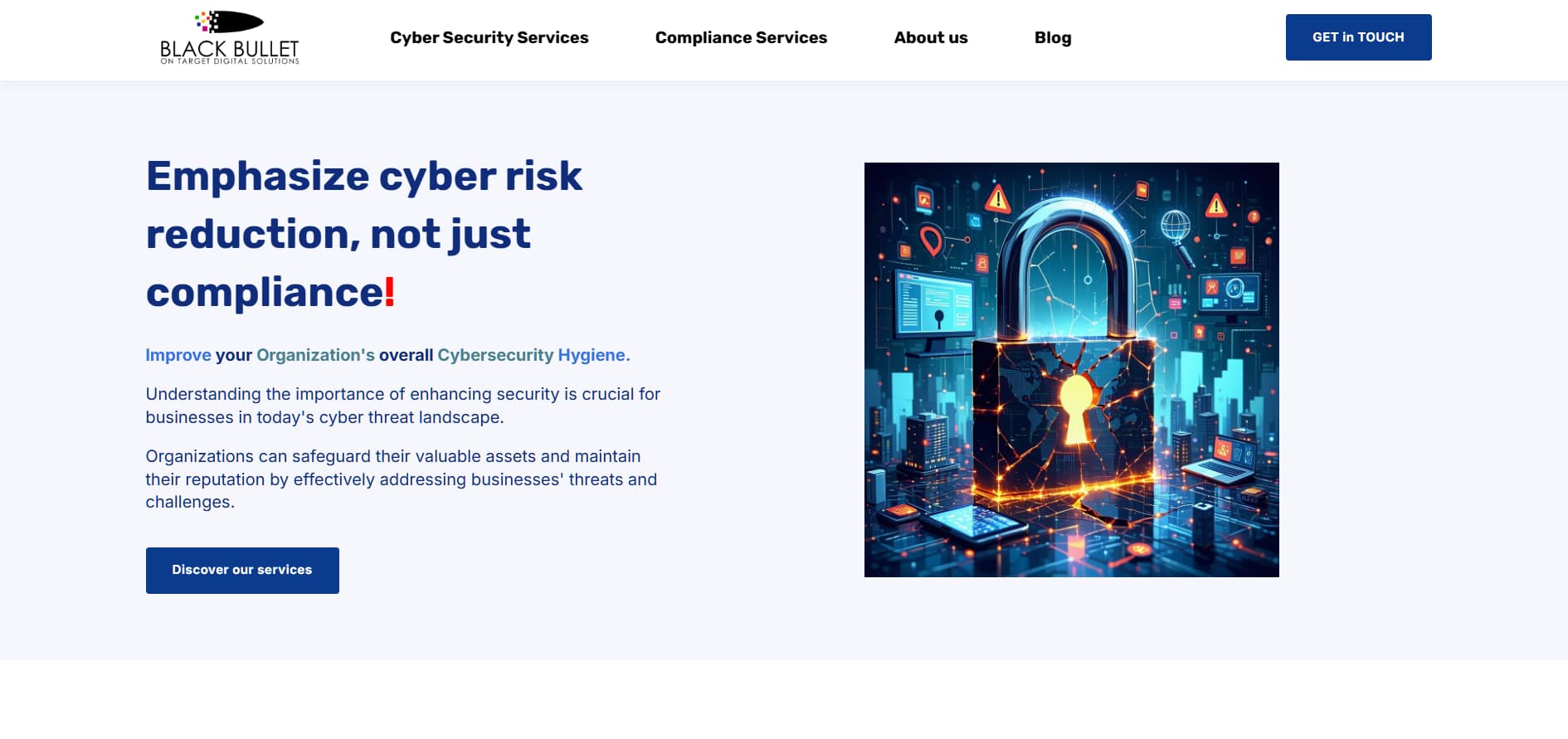
Black Bullet bridges software development and offensive security, offering secure‑by‑design consulting, architecture review, and penetration testing within a single delivery framework. This hybrid model appeals to organizations launching new digital products requiring embedded security validation from early development stages.
2026 Focus:Greater emphasis on DevSecOps pipeline integration, secure‑architecture consulting, and application‑lifecycle security reviews. Market positioning centers on customization, engineering collaboration, and tailored engagement models rather than standardized packages.
Best For: Product companies, development teams, and SMEs requiring tailored application‑security validation rather than pre‑defined service bundles.
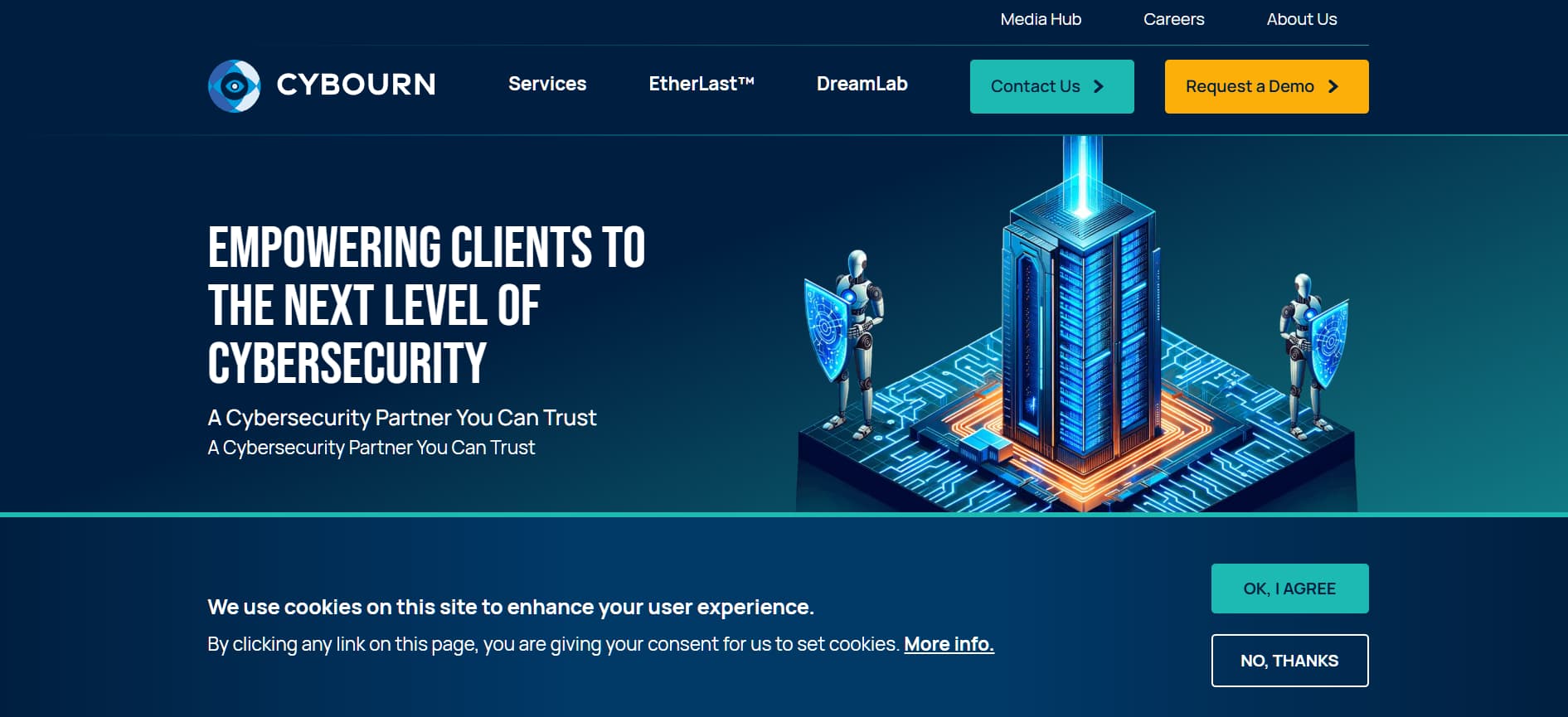
CyBourn operates as part of a broader managed‑security ecosystem, pairing penetration testing with continuous monitoring, XDR capabilities, and threat‑hunting analytics. Its multinational footprint and platform‑driven approach support cross‑border enterprise clients and globally distributed infrastructures.
2026 Focus:Expanded integration between offensive testing and managed detection analytics, enabling unified reporting across proactive validation and reactive incident‑response layers. Market positioning highlights scalability, platform integration, and enterprise governance alignment.
Best For: Multinational enterprises seeking a combined MSSP, SOC, and red team Romania capability under a single vendor relationship.
Cyber Smart Defence benefits from Stefanini’s global IT‑services reach while maintaining Romanian delivery teams and localized communication channels. Its appeal lies in international resource access combined with regional familiarity and enterprise‑scale support frameworks.
2026 Focus:Broader compliance audit templates, multinational reporting consistency, and improved cross‑border engagement delivery. Market positioning emphasizes global backing with regional responsiveness and scalable support models.
Best For: Romanian enterprises and multinational subsidiaries seeking international delivery frameworks with local execution teams.
| Company | Specialization | Best For | Region | Compliance | Ideal Size |
|---|---|---|---|---|---|
| DeepStrike | Continuous PTaaS, Manual Pentesting | SaaS, Fintech | Romania / Global | ISO 27001, PCI DSS, GDPR | SMB–Enterprise |
| Safetech Innovations | SOC + Pentest | Banks, Utilities | Romania | ISO 27001, NIS2 | Enterprise |
| Omnient | Methodology & Training | Mid‑Market | Romania / EU | ISO 27001 | SMB–Enterprise |
| CTD | Agile Red Team | Tech Startups | Romania / EU | CREST | SMB–Mid |
| Bit Sentinel | Research & Blockchain | Startups, Crypto | Romania | ISO 27001 | SMB–Mid |
| Black Bullet | Secure Development | Product Firms | Romania | OWASP / ISO | SMB |
| CyBourn | MSSP Integration | Multinationals | Global | ISO 27001, CREST | Enterprise |
| Cyber Smart Defence | Global IT Support | Enterprises | Romania / Global | ISO / NIS2 | Mid–Enterprise |
Pricing has shifted toward hybrid subscription and continuous‑validation models rather than single annual audits. Market norms for 2026 typically fall within these ranges, although scope complexity, regulatory requirements, and retest expectations significantly influence final quotes:
SMB Tier: $3,000 $8,000
Mid‑Market: $8,000 $20,000
Enterprise: $20,000 $60,000+
Red Team / Adversary Simulation: $30,000 $120,000+
Continuous PTaaS subscriptions often range from $2,000- $10,000 per month depending on asset volume, retest frequency, dashboard access, and integration depth. Procurement clarity should include retest policies, remediation timelines, reporting formats, and subscription flexibility rather than focusing solely on headline pricing.
For budgeting insights, many buyers review penetration testing cost benchmarks and manual vs automated penetration testing comparisons before finalizing vendor negotiations and approval workflows.
Buyers exploring cloud penetration testing services or web application penetration testing services often focus on methodology transparency, exploit validation depth, and remediation collaboration rather than raw vulnerability counts or automated scan outputs.
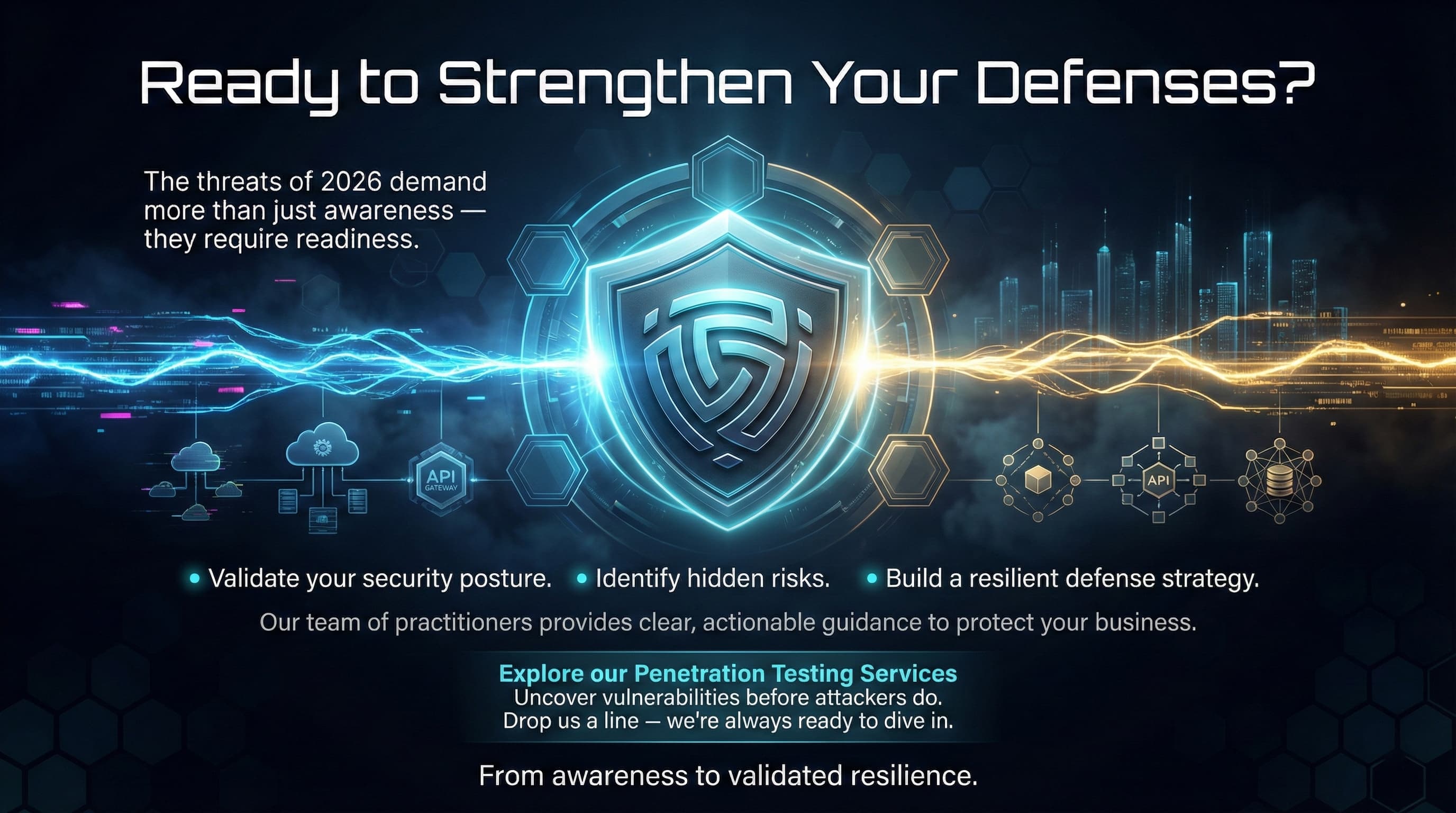
Ready to Strengthen Your Defenses? The threats of 2026 demand more than just awareness; they require readiness. If you're looking to validate your security posture, identify hidden risks, or build a resilient defense strategy, DeepStrike is here to help. Our team of practitioners provides clear, actionable guidance to protect your business. Explore our Penetration Testing Services to see how we can uncover vulnerabilities before attackers do. Drop us a line, we’re always ready to dive in.
AI accelerates reconnaissance, phishing campaigns, and automated vulnerability discovery while also enhancing defensive analytics and anomaly detection. However, human expertise remains critical for exploit validation, contextual risk interpretation, and remediation prioritization.
For fast‑moving SaaS and DevOps environments, continuous validation increasingly supplements or partially replaces annual audits. Many enterprises now combine quarterly or subscription‑based testing with annual compliance‑driven assessments.
Increasingly, yes. Cyber‑insurance carriers often request third‑party penetration‑testing evidence, remediation confirmation, and follow‑up retests before issuing or renewing policies, particularly for regulated sectors.
OSCP, OSWE, CREST, GIAC, and CISSP remain strong technical and governance indicators, especially when combined with ISO 27001 company‑level certification and demonstrable manual‑testing experience.
Mohammed Khalil is a Cybersecurity Architect at DeepStrike, specializing in advanced penetration testing, red‑team operations, and adversary emulation. With certifications including CISSP, OSCP, and OSWE, he has led numerous offensive‑security engagements for Fortune 500 organizations, fintech platforms, and healthcare networks. His work involves dissecting complex attack chains, validating real‑world exploit scenarios, and developing resilient defense strategies for clients across finance, healthcare, technology, and critical‑infrastructure sectors.

Stay secure with DeepStrike penetration testing services. Reach out for a quote or customized technical proposal today
Contact Us